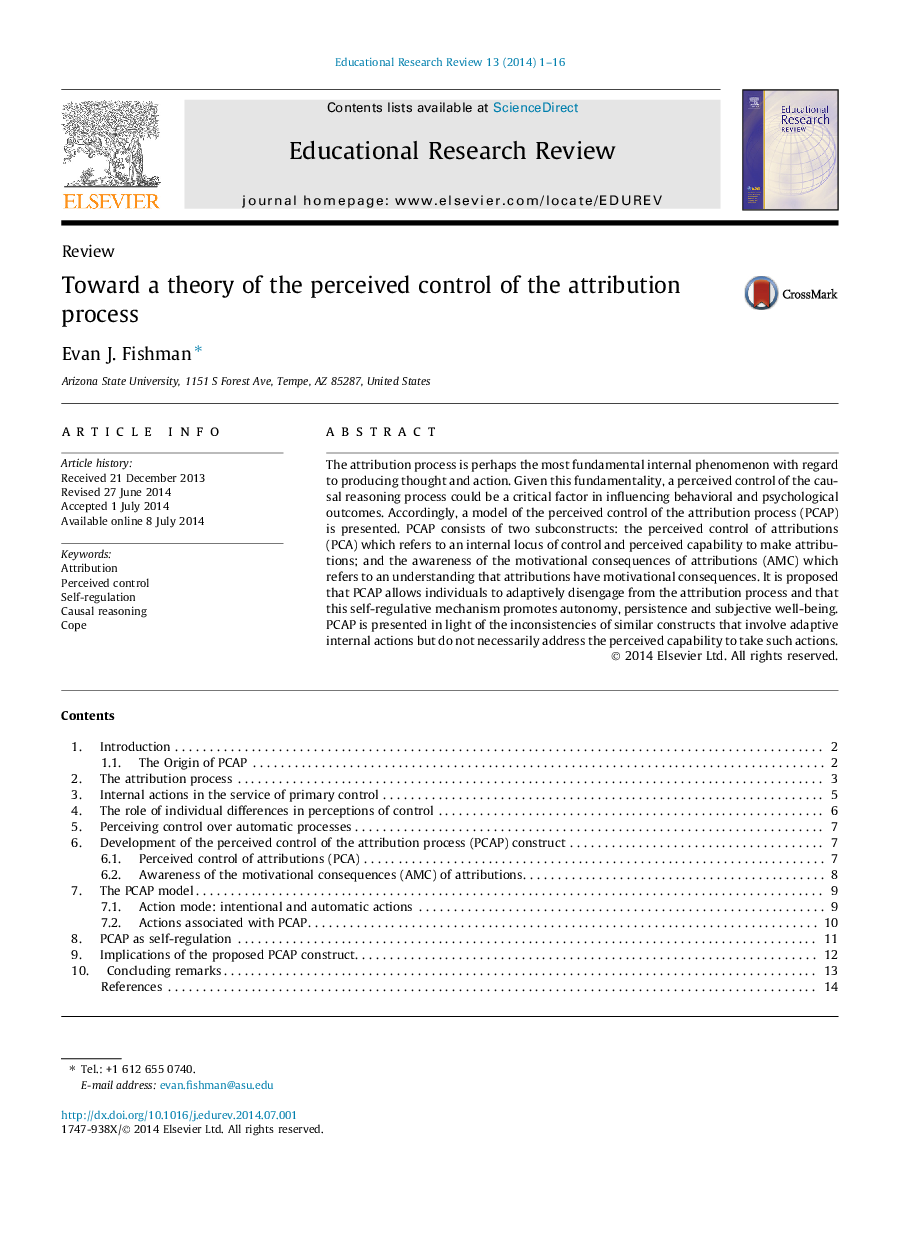| کد مقاله | کد نشریه | سال انتشار | مقاله انگلیسی | نسخه تمام متن |
|---|---|---|---|---|
| 355095 | 619235 | 2014 | 16 صفحه PDF | دانلود رایگان |
• A disengagement from the attribution process helps to circumvent negative motivational outcomes.
• A perceived control of the attribution process can facilitate coping following stressful events.
• Perceiving control over a cognitive aspect of an event likely promotes autonomy and well-being.
The attribution process is perhaps the most fundamental internal phenomenon with regard to producing thought and action. Given this fundamentality, a perceived control of the causal reasoning process could be a critical factor in influencing behavioral and psychological outcomes. Accordingly, a model of the perceived control of the attribution process (PCAP) is presented. PCAP consists of two subconstructs: the perceived control of attributions (PCA) which refers to an internal locus of control and perceived capability to make attributions; and the awareness of the motivational consequences of attributions (AMC) which refers to an understanding that attributions have motivational consequences. It is proposed that PCAP allows individuals to adaptively disengage from the attribution process and that this self-regulative mechanism promotes autonomy, persistence and subjective well-being. PCAP is presented in light of the inconsistencies of similar constructs that involve adaptive internal actions but do not necessarily address the perceived capability to take such actions.
Journal: Educational Research Review - Volume 13, December 2014, Pages 1–16
